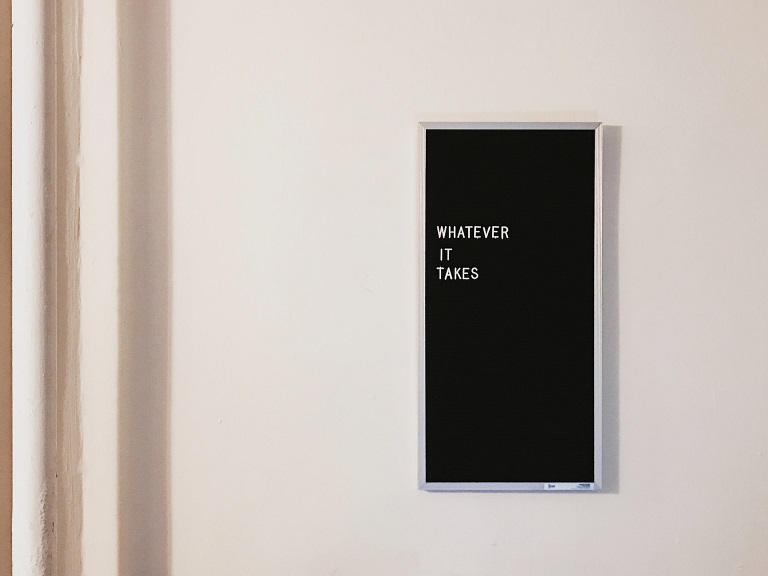What Is Residential Drug Rehab?
Inpatient treatment, likewise referred to as residential treatment, provides the highest level of rehab services for patients diagnosed with alcohol or other drug addiction. Generally, inpatient drug rehab programs consist of medical detox and integrated mental health services. With your consent, rehab personnel might also talk with your member of the family and speak with professionals you may already be dealing with to address your needs and challenges. Due to the fact that addiction is an illness that affects your body, mind and spirit, a multidisciplinary group is united to supply you with a holistic recovery plan. Your certified staff member for residential treatment might consist of:
- Physicians
- Nurses
- Psychiatrists
- Psychologists
- Licensed marital relationship and family therapists
- Certified addiction counselors
- Nutritionists
- Wellness and fitness experts
- Continuing care coordinators
- Financial supporters
- Clinical case managers
All set to take the next step?
Call (866) 503-4950 today and our team of recovery specialists will identify the most reliable substance abuse treatment programs and services to help you reclaim your life from addiction.

The Benefits of Residential Drug Rehab
Residential rehab, and many types of inpatient rehab, use specific benefits that other forms of treatments might not always provide. Some of these benefits include:
- The capability to detox in a safe and safe environment offering 24/7 care and assistance.
- The capability to overcome substance abuse concerns, codependency, co-occurring disorders, and injury in a safe and secure environment.
- Different therapies.
- A tight-knit neighborhood with whom to process all phases of substance abuse recovery.
Despite the large quantity of advantages that residential rehab offers, all types of substance abuse treatment show helpful for those wishing to recover from drug abuse issues. To read more about numerous inpatient and residential treatment programs near you in Princeton, New Jersey, call: (866) 503-4950
Inpatient Vs. Outpatient Rehab in Princeton New Jersey
Inpatient And Outpatient Addiction Treatment
Alcohol and drug treatment programs typically fall into 1 of 2 classifications– inpatient or outpatient rehab. While equally focused on rehabilitation, each type has distinct characteristics and benefits to use. Inpatient rehabilitations are intensive, residential treatment programs designed to treat major dependencies. Outpatient rehabs are part-time programs, allowing the recovering user to keep going to work or school during the day. It is essential that both the private with a substance use disorder (SUD) and their loved ones comprehend the distinctions prior to selecting an inpatient or outpatient treatment program. Checking out all choices prior to making a decision can put you or a loved one on the road to recovery long-lasting sobriety.Inpatient Rehab And Treatment
Inpatient recovery programs, likewise known as residential treatment, require patients to examine themselves into a regulated environment to overcome their addictions. Clients stay at a clinic with 24-hour medical and emotional support.Preparing For Inpatient Rehab in Princeton
It is very important to effectively get ready for rehab. There’s no set quantity of time required to prepare for treatment. It is important to set an entry date for rehab and to have actually affairs settled before that date. Some of the important things to take care of before getting in rehab consist of:- Speaking with your company
- Finding living arrangements for kids or other member of the family
- Preparation how to get to and from the recovery center
- Discovering what personal items are allowed
Family Support And Contact In Inpatient Rehab
Effective inpatient clinics know family participation is essential to recovery. Member of the family can call loved ones in residential treatment to supply emotional support and encouragement. When it concerns how and how typically homeowners can communicate with their loved ones, each inpatient center’s policy is different. Some rehab centers likewise supply counseling for the family of the person in treatment.Life Throughout Inpatient Rehab in Princeton, NJ
Throughout inpatient treatment, locals have the ability to completely focus on getting well and sober without the distractions of daily life. A typical day in residential treatment is carefully arranged and accounted for. Psychologists, counselors, and psychiatrists meet with clients individually and in group settings to guide inpatient recovery. A typical residential program runs anywhere from 28 days to 6 months. The initial step in inpatient treatment is medically assisted detox. Physicians and addiction experts monitor clients’ important signs while the drugs leave the system. Drug yearnings prevail throughout detox and can be tough to get rid of, typically causing relapse. Consistent healthcare provided throughout inpatient treatment helps defend against relapse. Clinicians can supply required medication and medical competence to lessen cravings and withdrawals. The brain responds in a different way to different addicting compounds gradually and a course of regular use. Withdrawal symptoms aren’t pleasant for any drug, but some drugs need to never ever be stopped without medical guidance. Some withdrawals can be deadly. Lethal withdrawals are connected to drugs like synthetic Opiates, Benzodiazepines, alcohol, and Heroin. During inpatient rehab, patients have access to 24-hour medical attention. This attention can imply the difference between relapse and recovery.Outpatient Rehab And Substance Abuse Treatment
Outpatient drug rehab is less restrictive than inpatient programs. Outpatient recovery programs usually require 10 to 12 hours a week invested checking out a regional treatment center. These sessions concentrate on drug abuse education, specific and group therapy, and teaching addicted people how to cope without their drug. Outpatient drug rehab can be an excellent standalone option for someone with a moderate addiction, or it can be part of a long-lasting treatment program. Outpatient drug rehab can last 3 to 6 months– something similar to inpatient treatment– or over a year.Outpatient Detox Programs in Princeton
Clients with mild-to-moderate drug withdrawal signs may find outpatient detoxing a fitting alternative to residential detox. Outpatient detox is safe, reliable, and takes less time to complete than inpatient detox; the typical outpatient detox is 6.5 days. Clients need to go to a health center or other treatment facility for physical and mental check-ups during outpatient detox. Clinicians or physicians might administer medications on-site to relieve withdrawal signs like anxiety, anxiety, and increased heart rate.How Does Detox Work?
Detox is the initial step in helping your brain and body recover from drug abuse. The detox process starts with assessments by medical physicians and nurses to identify which, if any, medical interventions are required. Detox is primarily a time to flush the chemicals from your body, which can be an uncomfortable experience without the right medical care to help reduce discomfort and/or drug yearnings. Medical personnel will work with you to examine your level of discomfort and offer you with medications, if needed, to deal with any pain or yearnings. During the detox process, you will be medically monitored 24/7 till medical staff determine you are stable enough to take part in rehab programming and activities.Social Assistance in Princeton Throughout Outpatient Rehab
Outpatient drug rehab allows those in recovery to stay in your home during treatment. Those undergoing outpatient drug rehab can continue working and remain near family and friends. Outpatient treatment centers generally conduct conferences during the night or in the morning, assisting those in the program maintain their regular schedules. Twelve-step groups like Alcoholics Anonymous (AA) and Narcotics Anonymous (NA) may be used as part of outpatient treatment. Research studies reveal that participating in recovery groups like AA and NA helps recuperating addicts stay sober. Many individuals with a substance use disorder (SUD) likewise turn to outpatient treatment after finishing an inpatient program as part of their continued recovery.Inpatient treatment programs generally cost more than outpatient drug rehab. The on-hand healthcare and psychotherapy offered to residential rehab patients increases treatment costs. The rate distinction should not encourage or prevent someone from picking the best treatment path for them.
Just How Much Does Residential Drug Rehab in Princeton Cost?
The cost of inpatient rehab programs depends on the treatment center picked, the level of clinical care advised, and the length of time in treatment. The quantity you pay will likewise depend on whether you’re able to gain access to insurance advantages to help cover the cost or you’re paying out-of-pocket. The majority of treatment centers are in-network with a lot of insurance carriers, and most patients use their health insurance benefits to assist cover treatment expenses. Insurance plan and benefits differ considerably, so it is essential to check with your supplier about protection specifics in your case. Some clinics use patient financial support funds, on a limited basis, to help balance out the cost of addiction treatment for certifying patients – please call (866) 503-4950 today to make certain you qualify.Residential Drug Rehab Princeton New Jersey?
Your primary step is to call our friendly assistance group on (866) 503-4950 for a confidential phone assessment. You will talk with a recovery professional who will figure out whether drug or alcohol treatment is needed and, if it is, will suggest the suitable level of care and deal with you to collaborate insurance benefits. If alcohol or drug addiction is not plainly indicated or if you’re not all set to devote to an inpatient stay, you can make the most of other services such as mental health sessions, coaching, enjoy a webinar, or listen to a podcast to get more information or to get inspiration.Whatever The Choice, Recovery Is Around The Corner
No matter which treatment alternative in Princeton you select for you or a loved one, rehab can change your life. Addiction is a chronic health problem, and recovery is a lifelong process. Physician, mental health counselors, and neighborhood groups like AA can teach the needed skills to avoid relapse. Take the first step toward recovery and call a treatment company today.Ready to take the next step?
Call (866) 503-4950 today and our team of recovery experts will determine the most effective substance abuse treatment programs and services to assist you recover your life from addiction.

